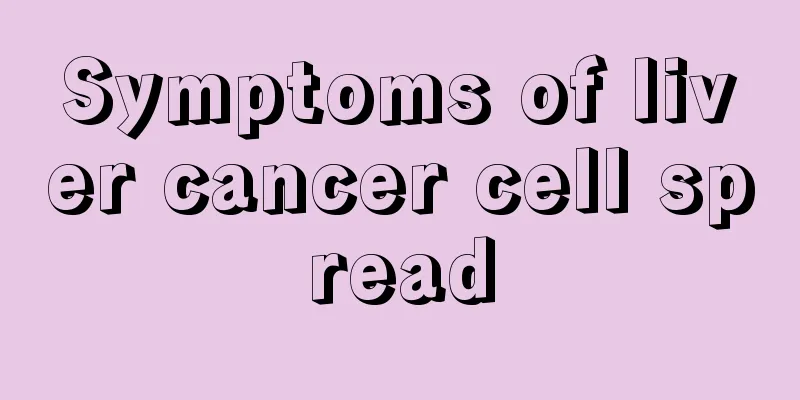How to do rehabilitation care for pituitary tumors

|
Surgery for pituitary tumor does not mean complete recovery. To overcome the disease, postoperative rehabilitation and care are still needed. In addition to paying attention to diet and proper exercise, since the surgical site is located in the relatively sensitive part of the brain, it is also necessary to prevent possible complications after surgery and have regular check-ups. Let me see how experts introduce the rehabilitation care for pituitary tumors. 1. Pay attention to diet after pituitary tumor surgery: Some dietary therapy plans can be adopted after pituitary tumor surgery. For example, you should pay attention to eating more foods rich in vitamin A, carotene and vitamin B2; at the same time, choose foods high in phospholipids to improve brain health, such as egg yolks, fish, shrimp, walnuts, peanuts, etc.; you should also consciously choose more eggs, animal liver, kidney, carrots, spinach, millet, cabbage, tomatoes, day lily, water spinach, wolfberry, etc. Patients with pituitary tumors need to avoid irritating foods such as tobacco, alcohol, spicy food, and cold food, as well as stimulating drinks such as coffee and strong tea. Patients with postoperative swallowing dysfunction should be fed a liquid diet through a nasogastric tube. Eat less spicy and greasy food, and avoid eating catfish. Postoperative diet should be nutritious, light, and easy to digest. 2. Pay attention to the occurrence of complications after pituitary tumor surgery: After the surgery of pituitary tumor, some cases may appear after a few days after the removal of the gauze strips used to pack the nasal cavity. If this happens, do not panic, and immediately see the nearest ENT department. In mild cases, temporarily filling the nasal cavity with cotton balls will be effective, while in severe cases, angiography examination is required. If you experience nasal congestion or continuous discharge of mucus or bloody secretions from your nasal cavity about one month after pituitary tumor surgery, you can use nasal drops to reduce inflammation, or go to an ENT department to clean your nasal secretions. 3. Routine follow-up after pituitary tumor surgery: After surgery for pituitary tumors, regular follow-up examinations should be conducted, including MRI enhancement in the sellar region, pituitary endocrine function, improvement in clinical symptoms, changes in visual field, and whether complications occur. Hormones are usually checked on the second day, one week, and one month after surgery; MRI enhancement in the sellar region is checked one week after surgery as a follow-up baseline, and MRI enhancement in the sellar region is checked again three months after surgery. The time for subsequent follow-up examinations can be determined based on the advice of the attending physician during follow-up visits. The above is a brief introduction to "How to do rehabilitation care for pituitary tumors". We hope that our introduction can help more patients. Experts remind patients to have a follow-up examination after surgery. Here, I wish the patient a speedy recovery. |
<<: How to care for patients after pituitary tumor surgery
>>: How to best treat a pituitary tumor
Recommend
How is shingles treated?
The incidence of shingles is relatively high in s...
What are the causes of Parkinson's disease?
I believe that most men have heard of a very stra...
What to do if a fly gets into your ear
In the summer, there are a lot of flies, mosquito...
Is it better for the follicle to be on the left or right?
As we all know, women have an ovulation period ev...
How to overcome excessive saliva when singing
Singing is an entertainment activity that many pe...
How to deal with mosquito bites
Every summer we are bitten by mosquitoes without ...
Is it possible to have a natural birth six years after a caesarean section?
When a woman is giving birth, there are many fact...
Why is the pain unbearable after liver cancer intervention? How to relieve the pain after liver cancer intervention?
Liver cancer is a relatively serious disease at p...
What are some ways to fall asleep quickly?
The quality of sleep has a great impact on the bo...
Symptoms of prostate cancer in men
There are no symptoms in the early stages of pros...
What are some tips for removing black dental plaque?
Black dental plaque not only affects the cleanlin...
Is moderate fasting healthy?
Young people nowadays are busy with their work, e...
How to maintain vitality in winter
Vitality is something that each of us has, and go...
There are small pimples around the lips
Everyone's skin is different and produces dif...
What to do about nasopharyngeal cancer? What are the treatments for nasopharyngeal cancer?
What to do about nasopharyngeal cancer? What are ...









